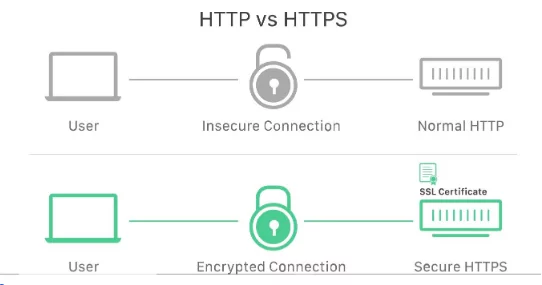When you start your business. Odds are preventing fraud and data encryption wasn't exactly at the top of your to-do list.
With that said, if you’re operating in an eCommerce space or platform, it’s something that’s increasingly crucial if you want to grow and thrive as a brand. Fraudsters, cyber attacks, and hackers are becoming an increasingly common threat that businesses have to deal with.
In 2021 alone, global eCommerce sales amounted to almost $5 trillion and that amount is growing more and more every year.
Unfortunately, eCommerce fraud is also growing, and at an alarming rate. In 2021, eCommerce fraud is estimated to have cost over $20 billion.
eCommerce fraud can be incredibly damaging to your profits as well as your brand's reputation. Once-off instances of fraud can result in inconvenient remunerations and reparations but should word spread, your brand may lose the consumer trust you’ve worked so hard to cultivate. That can be an incredibly difficult thing to come back from.
While today's buyers have both become increasingly trusting of the sites they interact with on a regular basis, as well as becoming skeptical of websites during their initial interactions. Bad experiences can permanently scare customers away while good experiences can help establish customer loyalty.
Ensuring that you and your business are as informed, and prepared as possible is essential to making sure your brand can survive the hurdles that come up. There are a range of actions, and policies designed to help you fight fraudsters, but that battle can only be won by understanding what it is that fraudsters look for when they target businesses.

5 Reasons your e-commerce attracts fraudsters
eCommerce is one of the fastest growing industries in today's increasingly digitized world. Any business that wants to be a success in the modern world needs to have a successful eCommerce platform. That means offering your customers a safe and secure shopping experience.
To do that, you’re going to need to know what makes your eCommerce website a target for your business's number one nemesis: fraudsters.
1. Your website isn’t secure
Given that hacking attacks are said to occur as often as every 39 seconds in the US alone. It’s vital that you remember this and the fact that these threats represent a constantly evolving problem for you and your business.
You need to do everything you can to ensure your consumers feel safe when accessing your eCommerce website. One of the most basic things you can look at implementing is SSL/TLS protocols.
These are encryption-based Internet Security protocols that ensure website privacy, authentication, and data integrity in Internet communications. An indicator that a website is implementing SSL/TLS technology is that it has "HTTPS'' in its URL instead of "HTTP."
An E-commerce website may come under attack and to save it from prying eyes, SSL certificate is an essential security protocol. E-commerce Cyber Security is also one of the essential aspects to consider for any online business. E-commerce runs on subdomains hence, wildcard is a good solution. A site developer can go with low-priced RapidSSL wildcard SSL, GeoTrust Wildcard SSL, AlphaSSL, wildcard SSL, etc.
While there are more complicated explanations, the graphic below is a pretty good but basic illustration of how these protocols work.

The more trustworthy and secure your website is, the more likely consumers are to use it repeatedly.
Additionally, you may want to consider implementing other security protocols to make your site more secure. This can range from anti-malware software, heightened password security measures, up-to-date websites, backups, and active site administrators to monitor dodgy comments and activities on your site.
2. You don't have CNP protection
Card not present fraud or CNP is one of the most common forms of digital fraud that eCommerce sites experience.
While there is a much more technical explanation, in short, CNP fraud is a payment scam that operates by taking advantage of people's card information without their consent. They use a combination of a person's name, credit card number, address details, or security number on the back of their cards to make non-consensual purchases of various products.
Online sales are a veritable gold mine for malicious online presences looking to exploit eCommerce websites. Some estimates expect CNP fraud to wind up costing businesses as much as $40 billion a year. As shocking as that may be, this number is only set to increase over the coming years. Fraud detection and prevention software can go a long way to reducing the efforts of fraudsters.
Knowing how to prevent card not present fraud is just as essential. Being able to ensure you have quality CNP fraud prevention technologies, policies, and procedures are essential to forming a successful business.
3. You’re a newly established business
New businesses are often a target for fraudsters, simply because they’re new. With eCommerce quickly becoming one of the fastest-growing markets out there, it’s no surprise that everyone wants a piece of the pie.
Including fraudsters. That’s because, in an age of increasing digital activity, there are a lot of safety considerations new businesses fail to implement from the get-go.
New businesses can often get quickly caught up in the excitement and positive possibilities of their initial sales and consumer reactions. It’s only when something goes wrong that they start to consider detailed protections.
Unfortunately, depending on the scale of the breaches committed by fraudsters, that can have a majorly negative effect on their business and morale. Startups thrive on productivity, enthusiasm, and momentum.
Damage from fraudsters can be a speed bump or an iceberg depending on how stable and resilient your new business is.
4. You sell expensive, luxury items
Online retailers who sell expensive items are some of the most targeted eCommerce businesses out there. Designer clothing, high-tech gadgets, and electronics and jewelry are some of the most at-risk businesses. Not only are these items easy to fraudulently buy and resell, but because they’re so expensive, fraudsters only need to make a few purchases before receiving a large amount of profit.
Because there are fewer transactions overall, this also means there are fewer opportunities for your business to get the screening of this fraud down to a t. Due to the costly nature of each transaction and the sort of high-end market you’re dealing with, this also means your brand can’t risk alienating its market with stringent protections and authentication.
Combatting fraudsters whilst appealing to your target demographic can be a tough business, but it’s essential to try and get it right.
5. Your web forms aren’t secure
With cyberattacks becoming increasingly frequent (up by 31% between 2020 and 2021) providing your customers with safe ways to enter the data you need is vital to creating a successful eCommerce business. That’s why it’s so important to have secure web forms.
Customers need to feel safe whenever they use your website and input their information. They need to know that they can trust you not to leave their data exposed to increasingly common data breaches and cyber-attacks.
Having secure web forms is one of the best ways to go about achieving that. There are some great services out there that allow you to create forms that are on brand, regulation compliant with clear, easy-to-understand policies. Great forms will also enable you to offer your users a variety of protection. This includes CAPTCHA authentication, password protection, SSL protocols, data encryption, and more.
Secure web forms ultimately increase user convenience and help negotiate the efforts of fraudsters.
Final thoughts
Fraudsters are becoming a more and more significant threat to eCommerce businesses as time goes on. This represents a significant danger for your business and brand.
In fact, a recent report claims that as much as 66% of consumers refused to engage with brands where their account and details were compromised.
It’s important to remember that while this growth represents a significant challenge to your brand and its eCommerce platform, it’s not one that can’t be overcome.
eCommerce and its meteoric growth is a major asset for any business, even for brick-and-mortar businesses. Identifying what can make your business a target, can go a long way toward helping your business protect itself and your customers.
When it comes to eCommerce, your customers and their needs are everything.

